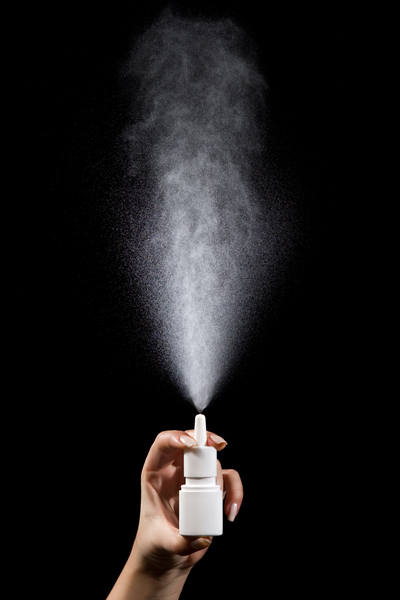The battle to fight treatment-resistant depression just got a new weapon in the form of a nasal spray. Is it ready for your patients?

According to Ann McDonald, in her blog post on the Harvard Health Blog, only about a third of patients who are diagnosed with major depressive disorder (MDD) find a medication that works for them on the first try: “When the first medication doesn’t adequately relieve symptoms, next step options include taking a new drug along with the first, or switching to another drug. [Approximately] one-third of people with major depression cannot achieve remission even after trying multiple options.”
Tiffany Farchione, M.D., acting director of the Division of Psychiatry Products in the FDA’s Center for Drug Evaluation and Research, said in the agency’s statement:
“There has been a long-standing need for additional effective treatments for treatment-resistant depression, a serious and life-threatening condition. Controlled clinical trials that studied the safety and efficacy of this drug, along with careful review through the FDA’s drug approval process including a robust discussion with our external advisory committees, were important to our decision to approve this treatment.”
Due to possible side effects and the potential for abuse and misuse, the spray must be administered in a certified clinic or office. The FDA provided further guidance here.
The History of Ketamine

Ketamine was developed in the early 1960s and was FDA-approved as an anesthetic. Placed on the list of controlled substances in the US in 1999, ketamine has been used illegally as the club drug Special K.
In 2000, researchers started studying ketamine as a potential depression treatment. The Boston Herald reported that a Massachusetts General Hospital trial found ketamine may provide “instant relief to those who have been failed by other treatment methods, which can take two to six weeks to work even if they are effective.”
The GeneSight Test & Esketamine
According to Psychiatrist Alexander Papp, MD, in a Q&A for UC San Diego Health, ketamine “works by quickly increasing the activity of the neurotransmitter glutamate in the frontal cortex of the brain, while also allowing new synapses to form in the same area. The speediness of ketamine in producing an antidepressant effect occurs because this drug bypasses the traditional serotonin route and goes directly to activating glutamate. This is very different from traditional antidepressants, which first increase the activity of serotonin in multiple different areas of the brain, and then ultimately affect glutamate.”

Because esketamine accumulates in the brain before the liver, variations in an individual’s metabolism, which can be identified by the GeneSight Psychotropic test, are not expected to influence response. No studies to date have demonstrated an influence of ketamine metabolism variation on outcomes for intranasal ketamine in major depressive disorder. Additionally, there are currently no pharmacodynamic markers that would predict likelihood of response to esketamine. As a result, we do not plan to update the GeneSight Psychotropic panel.
While the FDA approval is a promising development, it will ultimately be the decision of healthcare providers like you if esketamine or other depression treatments will help your patients with treatment-resistant depression.
Our articles are for informational purposes only and are reviewed by our Medical Information team, which includes PharmDs, MDs, and PhDs. Do not make any changes to your current medications or dosing without consulting your healthcare provider.
The GeneSight test must be ordered by and used only in consultation with a healthcare provider who can prescribe medications. As with all genetic tests, the GeneSight test results have limitations and do not constitute medical advice. The test results are designed to be just one part of a larger, complete patient assessment, which would include proper diagnosis and consideration of your medical history, other medications you may be taking, your family history, and other factors.
If you are a healthcare provider and interested in learning more about the GeneSight test, please contact us at 855.891.9415. If you are a patient, please talk with your doctor to see if the GeneSight test may be helpful.




